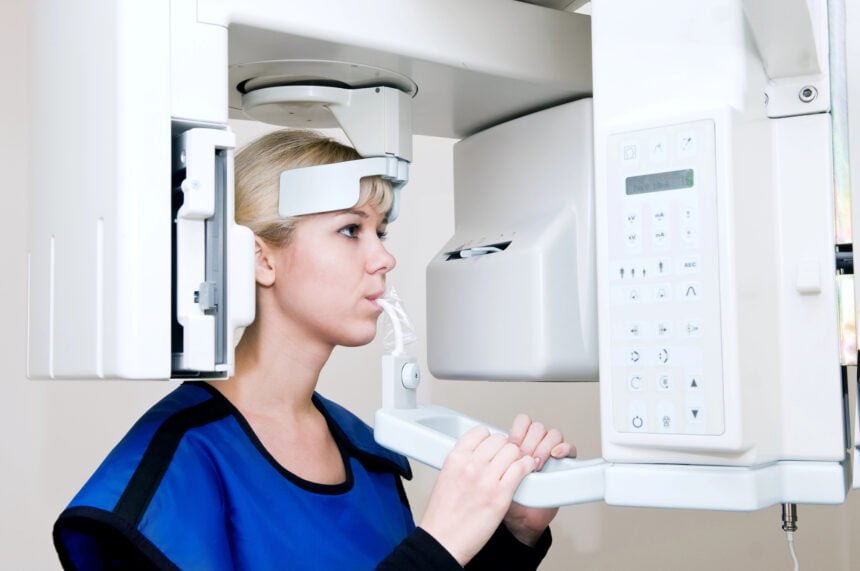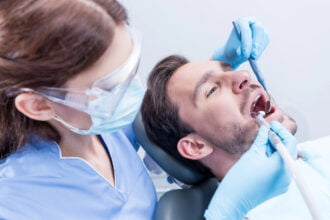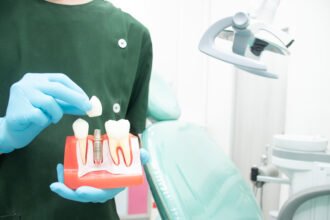Taking care of your teeth is crucial, and regular dental check-ups play a big part in that. But what about dental X-rays? You might wonder how often you really need them and why they’re so important. Let’s break down everything you need to know about the recommended frequency for dental X-rays and how they contribute to your optimal oral health.
- Why Dental X-Rays Are Important
- What Are The Different Kinds Of X-Rays
- How Frequent Should You Get Dental X-Rays
- What Are The Different Factors At Play When Getting Regular Dental X-Rays
- Are Dental X-Rays Safe For Your Health
- What Are The Different Advantages Of Dental X-Rays For Your Oral Health
- What Happens During A Dental X-Ray Appointment
- To Conclude
Why Dental X-Rays Are Important
Why are dental X-rays significant in upholding oral health? I asked my general dentist and they said that they help spot issues that aren’t visible to the naked eye, such as cavities, bone loss, and infections. X-rays provide a comprehensive picture of your oral health, allowing your dentist to detect and treat problems early before they become more serious.
What Are The Different Kinds Of X-Rays
There are several types of dental X-rays, each serving a specific purpose:
- Bitewing X-Rays: These show the upper and lower back teeth in one view. They’re great for spotting decay between teeth and changes in bone density caused by gum disease.
- Periapical X-Rays: These focus on one or two teeth at a time, capturing the entire tooth from crown to root. They’re useful for identifying problems below the gum line or in the jawbone.
- Panoramic X-Rays: These provide a broad view of your entire mouth, including all the teeth, jaws, and surrounding structures. They’re often used for planning orthodontic treatment or assessing wisdom teeth.
- Occlusal X-Rays: These show the roof or floor of your mouth and are used to find extra teeth, teeth that haven’t yet broken through the gums, fractures, and more.
How Frequent Should You Get Dental X-Rays
The frequency of dental X-rays depends on several factors, including your age, oral wellbeing status, and risk for dental disease. Here’s a general guideline to help you understand what might be recommended for you:
- Children: Kids tend to need X-rays more often than adults because their mouths are still developing, and they’re more prone to cavities. Typically, children should have bitewing X-rays every six months to a year.
- Adults with Good Oral Health: If your mouth is healthy and you don’t have a history of dental problems, you might only need X-rays every two to three years.
- Adults with a History of Dental Issues: If you’ve had issues like gum disease, frequent cavities, or other oral health problems, your dentist may recommend X-rays every six months to a year.
- High-Risk Adults: Smokers, people with gum disease, and those with a history of extensive dental work might need X-rays more frequently to monitor for new problems.
What Are The Different Factors At Play When Getting Regular Dental X-Rays
Several factors can influence how often you need dental X-rays. Here are some key considerations:
- Age: Younger patients typically need X-rays more often because their teeth and jaws are still developing.
- Oral Health History: A history of dental problems can necessitate more frequent X-rays to catch any new issues early.
- Symptoms: If you’re experiencing pain, swelling, or other symptoms, your dentist might order X-rays to diagnose the problem.
- Treatment Plans: Ongoing dental treatments, such as braces or implants, often require regular X-rays to monitor progress.
Are Dental X-Rays Safe For Your Health
Worried about the safety of dental X-rays? It’s a common concern, but modern dental X-rays are very safe. Dentists use digital X-rays, which emit significantly less radiation than traditional film X-rays. Plus, you’ll usually wear a lead apron to protect the rest of your body from any exposure.
What Are The Different Advantages Of Dental X-Rays For Your Oral Health
Regular dental X-rays offer numerous benefits that go beyond just spotting cavities. Here’s why they’re so crucial:
- Early Detection: X-rays can reveal issues long before you notice symptoms, allowing for early intervention and simpler treatments.
- Comprehensive View: X-rays provide a detailed look at your entire mouth, including areas that aren’t visible during a regular exam.
- Accurate Diagnosis: They help your dentist diagnose issues accurately, ensuring you get the right treatment for your specific needs.
- Preventive Care: By catching problems early, X-rays help prevent more serious and costly dental issues down the road.
What Happens During A Dental X-Ray Appointment
Whatever your situation is – if it’s been a while since your last dental X-ray or if it’s your first time doing it, you might be curious about what to expect during a dental x-ray appointment. Here’s a quick rundown:
- Preparation: You’ll be seated comfortably, and your dentist will place a lead apron over your body for protection.
- Positioning: Depending on the type of X-ray, you might bite down on a small piece of plastic or rest your chin on a support.
- Taking the X-Ray: The dentist or technician will position the X-ray machine and take the images. You’ll need to stay still for a few seconds while each X-ray is taken.
- Review: The images are usually available immediately, allowing your dentist to review them with you and discuss any findings.
To Conclude
Dental X-rays are a vital part of maintaining your oral health. They help detect problems early, provide a complete view of your mouth, and ensure accurate diagnoses and effective treatment plans. While the recommended frequency of X-rays varies based on individual factors, staying informed and proactive about your dental care is key. Regular check-ups and open communication with your dentist will help keep your smile healthy and bright.










